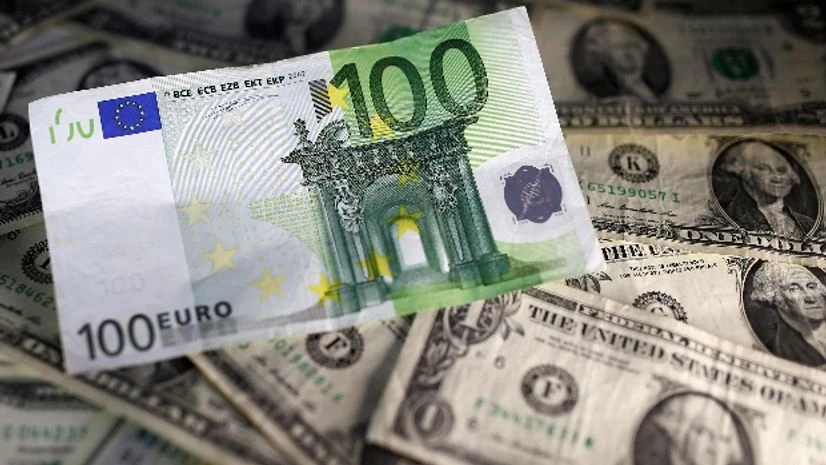By Joice Alves
LONDON (Reuters) - The euro and sterling fell sharply against a strengthening dollar on Friday amid nervousness over banks, with better-than expected economic data failing to lift sentiment.
Banking stocks plunged in Europe with heavyweights Deutsche Bank and UBS Group pummelled by worries that the worst problems to hit the sector since the 2008 financial crisis have not yet been contained.
Better-than-expected flash Purchasing Managers' Index (PMI) data failed to lift the single currency as sentiment in markets were fragile with European banks falling more than 5%.
"The data were better than expected, but the mood in the market is risk aversion, which is supporting another move back to the safe haven dollar," said Jane Foley, Head of FX Strategy at Rabobank London.
The euro sank more than 1% to $1.0714 and was last down 0.9% at $1.0735.
More From This Section
Risk aversion also sent sterling 0.6% lower to $1.2214, despite data showing the British economy was set to grow in the first quarter and confidence was growing.
The pound touched a seven-week high of $1.2341 on Thursday in volatile trading after the Bank of England raised interest rates by 25 bps to 4.25%, but said a surprise resurgence in inflation would probably fade fast, stoking speculation it had ended its run of hikes.
Banking stocks have been battered this month following the sudden failures of two regional U.S. lenders and the emergency sale of embattled Swiss bank Credit Suisse to rival UBS.
SAFE-HAVEN DEMAND
The FX world seemed to suggest a bout of risk aversion with safe-haven proxies, gold and yen outperforming and most other currencies softer, according to Christopher Wong, currency strategist at OCBC.
"I think with sentiment still fragile, price action can swing both ways depending on whether there are any contagion surprises."
The safe-haven yen was in demand, up 0.7% to 129.95 per dollar, after touching a seven-week high of 129.64.
Japan's core consumer inflation slowed in February, but an index stripping away energy costs hit a four-decade high, data showed on Friday.
With inflation still exceeding the Bank of Japan's 2% target, the data will keep alive market expectations of a near-term tweak to its bond yield control policy, according to analysts.
The dollar index, which measures the currency against six major rivals, rose 0.6% at 103.22.
The Fed on Wednesday raised interest rates by 25 basis points, as expected, but took a cautious stance on the outlook because of banking sector turmoil even as Fed Chair Jerome Powell kept the door open on further rate rises if necessary.
U.S. Treasury Secretary Janet Yellen reiterated on Thursday that she was prepared to take further action to ensur Americans' bank deposits stayed safe, to ease investor nerves.
(Reporting by Joice Alves in London, Ankur Banerjee in Singapore; editing by Angus MacSwan and Mark Heinrich)
(Only the headline and picture of this report may have been reworked by the Business Standard staff; the rest of the content is auto-generated from a syndicated feed.)

)
